Publications
Articles, publications, books, tools and multimedia features from the U.S. Institute of Peace provide the latest news, analysis, research findings, practitioner guides and reports, all related to the conflict zones and issues that are at the center of the Institute’s work to prevent and reduce violent conflict.
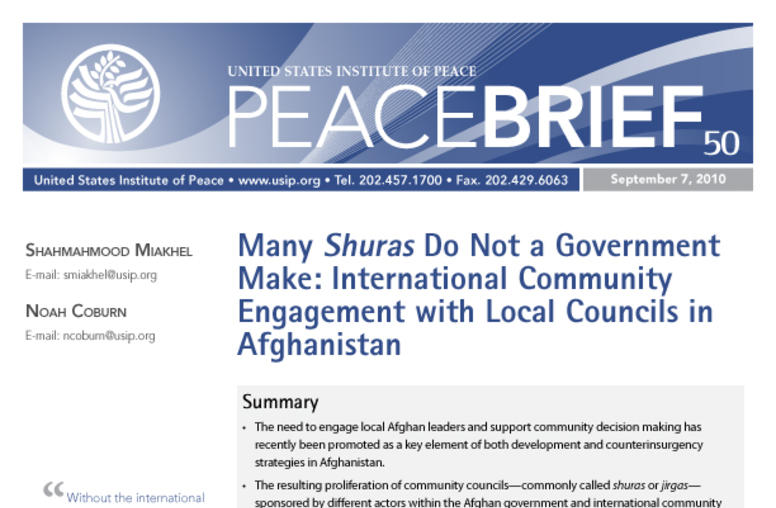
Many Shuras Do Not a Government Make: International Community Engagement with Local Councils in Afghanistan
The need to engage local Afghan leaders and support community decision making has recently been promoted as a key element of both development and counterinsurgency strategies in Afghanistan. This Peace Brief supports the attempts to create a coherent long-term goal of local governance based on legitimate local actors, most likely selected through elections.
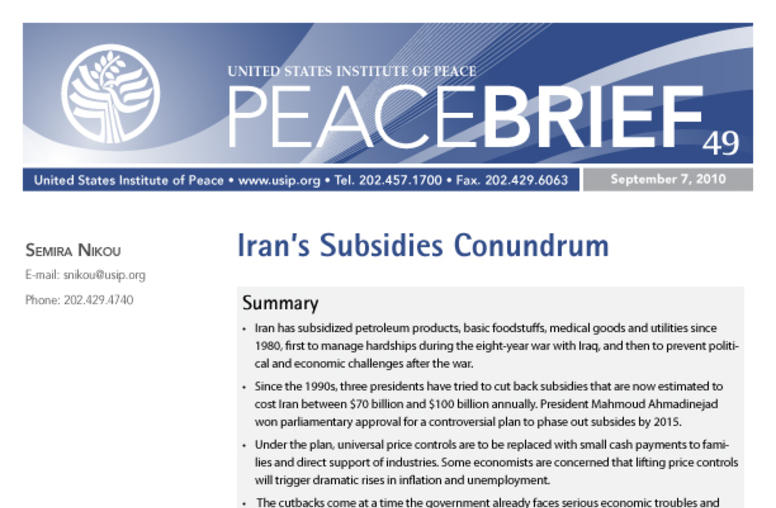
Iran's Subsidies Conundrum
This Peace Brief was written in advance of Iran’s subsidy reform. Currently scheduled for the end of September, the reform is one of the most debated and anticipated economic overhauls in the country. It has the potential to incur severe consequences in a country already burdened by sanctions and fraught with inflation and unemployment. At the same time, reform can potentially discourage waste, reduce inefficiencies in industries, and be a catalyst for economic liberalization.
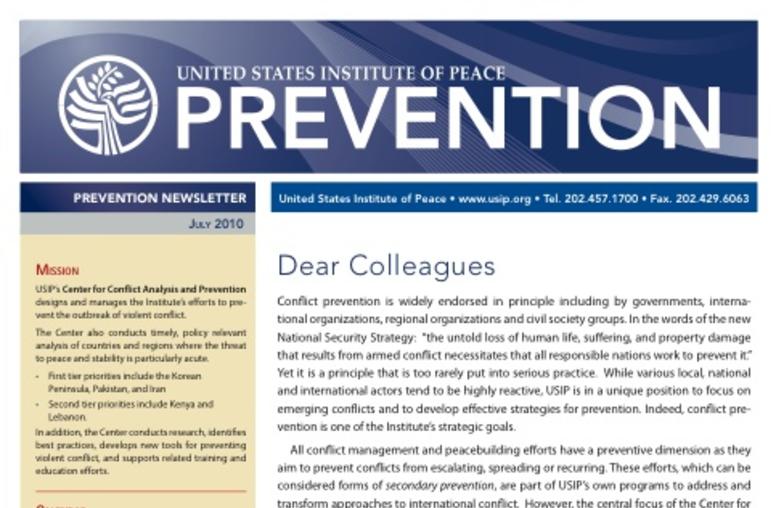
USIP Prevention Newsletter - September 2010
The bimonthly Prevention Newsletter provides highlights of CAP's conceptual work, its region specific work aimed at helping to prevent conflicts in Africa, the Middle East, South and Northeast Asia, and the special projects on genocide prevention and nonproliferation. It also provides Over the Horizon thinking on trends in different regions, as well as CAP events, working groups and publications.
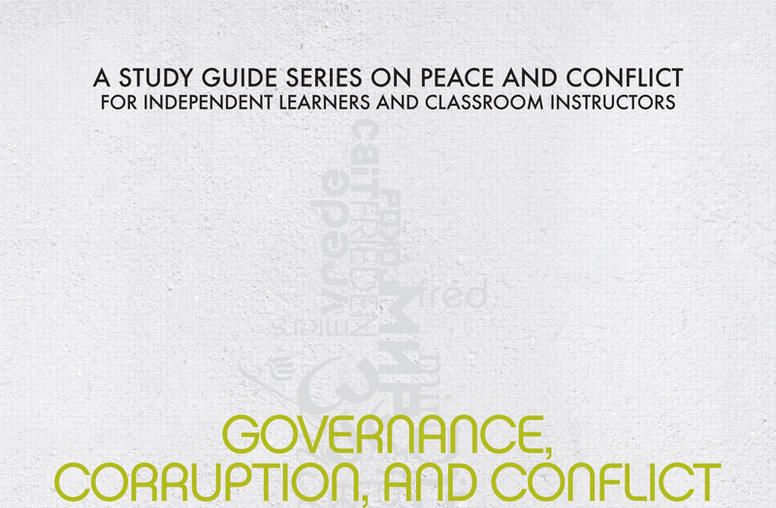
Governance, Corruption, and Conflict
Corruption exists in all societies but its cost are particularly high for states emerging from conflict. Not only can it retard development but it can also create further instability. This study guide will help students understand the relationship between corruption and conflict and learn about ways to address corruption and promote good governance.
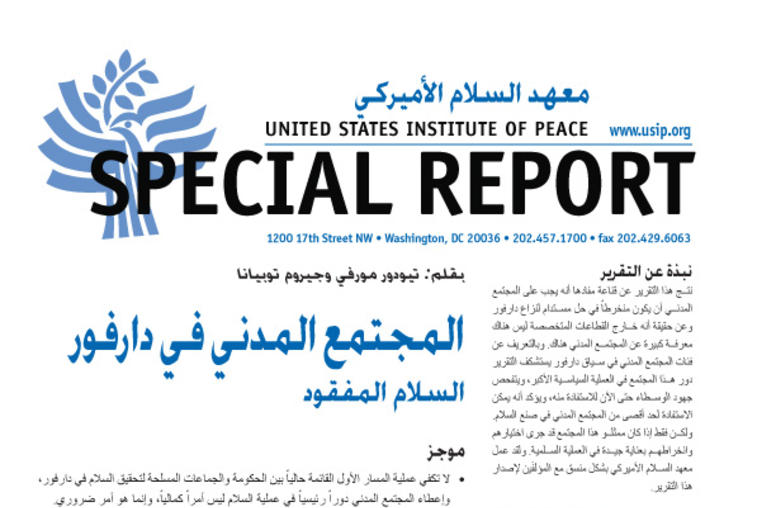
Civil Society in Darfur (Arabic Edition)
This report explores civil society’s role in Darfur's greater peace process, examines mediators’ efforts to harness civil society to date, and argues that civil society could be extremely useful to the peacemaking process, but only if its representatives to the process are carefully selected and properly involved in the process.
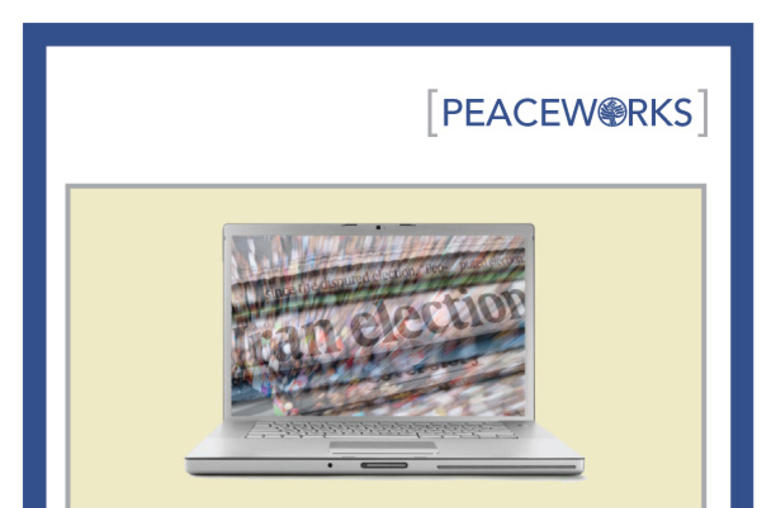
Blogs and Bullets: New Media in Contentious Politics
In this report from the United States Institute of Peace’s Centers of Innovation for Science, Technology, and Peacebuilding, and Media, Conflict, and Peacebuilding, a team of scholars from The George Washington University, in cooperation with scholars from Harvard University and Morningside Analytics, critically assesses both the “cyberutopian” and “cyberskeptic” perspectives on the impact of new media on political movements.
Ambassador Christopher Hill on the Next Chapter in Iraq
After a seven-year military presence, the U.S. shifts to a civilian-led effort in Iraq, with some 50,000 U.S. troops remaining in the country. Retiring U.S. Ambassador to Iraq Christopher Hill spoke at the United States Institute of Peace on August 18, 2010 about this major transition, the current situation in Iraq and relations with the U.S. going forward. Read the event analysis, Ambassador Christopher Hill on the Next Chapter in Iraq
Crescent and Dove: Peace and Conflict Resolution in Islam
1. How does this volume contribute to the field of religion and peacebuilding?
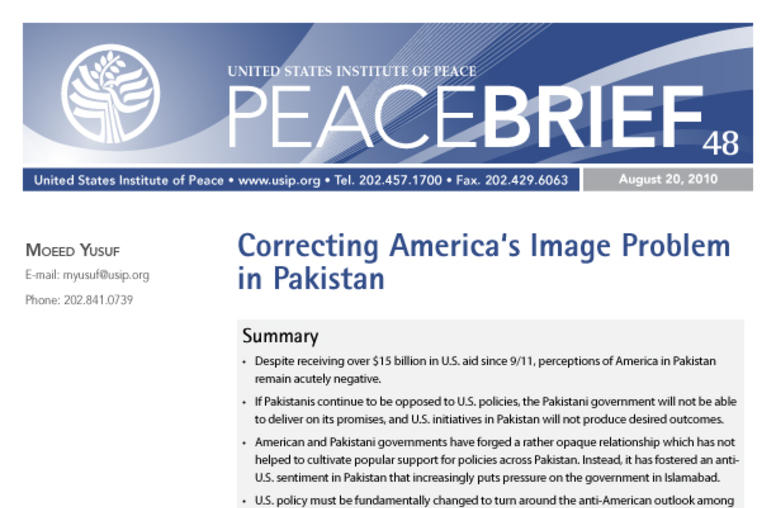
Correcting America's Image Problem in Pakistan
Despite receiving over $15 billion in U.S. aid since 9/11, perceptions of America in Pakistan remain acutely negative.This report draws upon the author’s discussions with a large cross section of Pakistani opinionmakers during his four visits to the country in 2010.
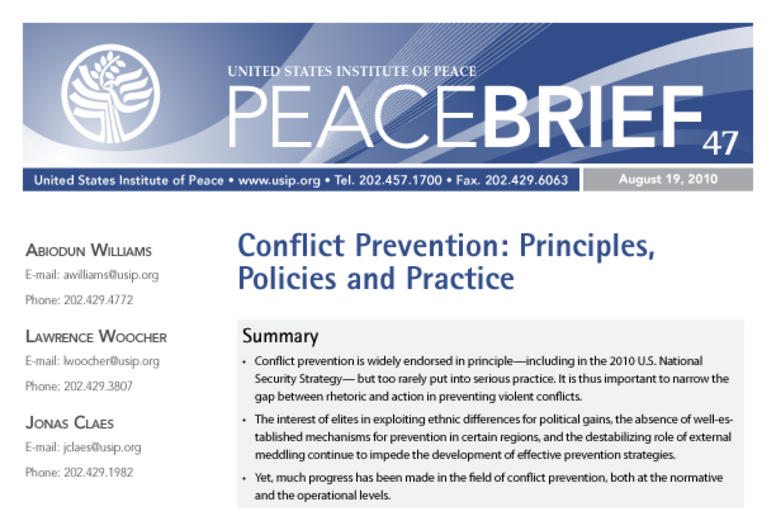
Conflict Prevention: Principles, Policies and Practice
On July 1, 2010, the U.S. Institute of Peace organized an all-day conference entitled "Preventing Violent Conflict: Principles, Policies, and Practice." The goals of this conference were to spotlight the importance of conflict prevention, to foster productive discussions between leading scholars and distinguished practitioners, and to identify priority areas for future work on conflict prevention by the Institute and the field at large. This Peace Brief provides an overview of that day's disc...